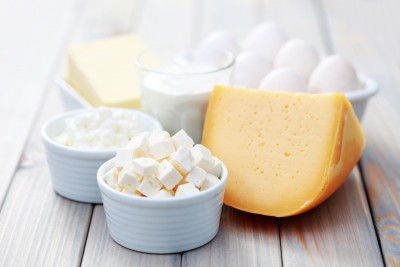There are different types of fat and depending on their type, may have positive or negative effects to your health and diet.
The different types of fat
Polyunsaturated and monounsaturated Fatty Acids – The healthy fats
This is the type of fat that should be part of a healthy diet. Polyunsaturated and monounsaturated fatty acids (omega 3 and omega 6) are essential for normal body functioning and play an important role in producing hormones, maintaining cell structure and many more. Good sources for healthy fats are fish, grains, almonds, peanuts, hazelnuts, avocados, soymilk, walnuts, tofu, peanut butter, olives, and vegetable oils.
Saturated Fats – The “bad”
Saturated fats are what most people have in mind when they talk about ‘bad’ fat. They are found in meat, sweets, dairy products, butter, cheese, whole fat dairy products and almost any commercial or fast food product. Regular intake of saturated fats can cause unhealthy cholesterol, blocked arteries, different heart diseases, type 2 diabetes and a lot more diseases even cancer.
Trans Fats – The “Evil”
Trans fats are similar to saturated fats and can also create negative health effects. Trans fats are found in many food and oil products like candy bars, fried foods, chips, doughnuts and many more.
How many healthy fats to eat?
The ideal diet for weight loss and health is the balanced diet. A balanced diet contains those macronutrients necessary for good health and proper functioning of the different body organs. These include protein, carbohydrates, vitamins and minerals and unsaturated fat.
A diet low in fat excludes or minimized the consumption of fat. Whether is it healthy or not depends on how restrictive is on fat usage. In general a balanced diet should include:
Fat intake no more than 30% of daily calories
Saturated fats to less than 10% of calories
Trans fat to 1% of calories
Fat and calories
Fat contains double the calories of protein and carbohydrates. One gram of fat is about 9 calories while a gram of protein or carbohydrates is only 4 calories. One pound of fat is approx. 3500 calories.
So, a low fat diet that excludes saturated and trans fat sources is welcomed but a low fat diet that does not include healthy fats is not desirable.
The role of healthy fats in our everyday diet
Help creating a strong immune system
Diets that restrict the consumption of omega 3 and 6 can negatively affect our immune system. Studies have also shown that the regular consumption of omega 3 is beneficial for many diseases including arthritis.
Required for good mental health
Fatty acids can improve the functioning of the nervous system and act against conditions of the brain like Alzheimer’s and depression. They also protect against memory loss.
Omega 3 fatty acids can fight cholesterol
Bad cholesterol levels can be reduced and at the same time improving the levels of good cholesterol. Fatty acids can also help prevent certain heart diseases, stroke and Type 2 Diabetes.
They are good for the skin, hair, eyes and bones
Unsaturated fat and omega 3 fatty acids are beneficial for the hair, skin and bones as well as the eyes.
Tips for using healthy fats in your diet
- Try to avoid trans fats from your diet. You can always read the food label and choose products low in these types of fat.
- Reduce the consumption of saturated fats. Saturated fats are almost everywhere but you can do some simple food replacements and minimize their consumption. You can choose chicken, fish and poultry over red meat, olive oil over butter, non-fat yogurt (try Greek yogurt) over sour cream and low fat dairy products over full fat dairy.
- Make sure that sources of poly and mono unsaturated fats (fish, grains, almonds, peanuts, hazelnuts, avocados, soymilk, peanut butter, olives, and vegetable oils) are part of your daily diet.
- Cook with low fat or no fat products. Olive oil is a great choice instead of butter or margarine.
- Eat nuts for snacks. Nuts are great fat burners and can be taken as snacks between meals.
- Avoid salad dressings. Salads are healthy and recommended but without the dressing. Instead use olive oil, vinegar and lemon choice.
- Prefer baked or grilled food instead of fried.
- Make it a habit to eat fish twice per week so as to ensure that you are getting the minimum dosage of omega 3 fatty acids.
- Remove the skin from the chicken.
- Avoid packaged snack foods e.g. microwave popcorn.
Source




0 Response to "What are healthy fats to eat?"
Post a Comment